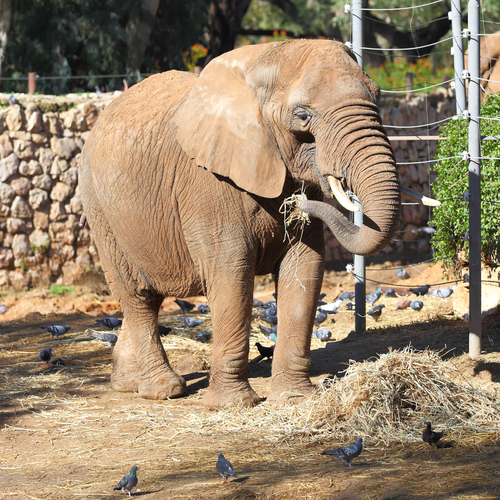Judge takes first step to decide whether Happy the elephant should be released from Bronx Zoo

Photo by LeonP/Shutterstock.com.
Happy the elephant has cleared a hurdle to possible freedom from the Bronx Zoo with a New York judge’s show-cause order.
The Orleans County judge, Tracey Bannister, ordered the Bronx Zoo’s director to show cause why the elephant should not be released and transferred to an appropriate sanctuary.
The Nonhuman Rights Project characterized the decision as a habeas corpus order. It is the second such order in U.S. history and the first entered on behalf of an elephant, according to a press release from the animal rights group. Courthouse News Service, Fast Company and Forbes have coverage.
The first habeas order, according to the group, was entered on behalf of chimpanzees Hercules and Leo in 2015. But a court spokesperson said after that ruling that the judge had mistakenly labeled her order a writ of habeas corpus, and her intent was only to allow the parties to argue the case. The judge ultimately denied habeas relief, saying she was bound by a New York appellate decision.
In May, New York’s highest court rejected repeat habeas appeals filed on behalf of two other caged chimpanzees, Tommy and Kiko. A concurring judge said the case was correctly dismissed for technical reasons, but courts should consider whether chimpanzees have a right to liberty protected by habeas corpus.
The Nonhuman Rights Project litigated the chimpanzee cases and is now trying to secure Happy’s release.
Happy is a 47-year-old Asian elephant that was born in the wild and brought to the United States soon afterward. She was relocated from the Lion Country Safari in Florida to the Bronx Zoo in 1977. Two elephants that were paired with Happy have died, according to a New York Times story published in 2015.
A longtime companion elephant, Grumpy, was euthanized in 2002 after two new elephants added to her enclosure charged at her, causing the elephant to stumble and sustain injuries that left her unable to get up. The two charging elephants were separated from Happy. A second elephant paired with Happy named Sammy was euthanized because of severe liver disease in 2006.
“Happy is an autonomous being who evolved to walk 20 or more miles a day as a member of a multi-generational large social group,” said Steven Wise, founder and president of the Nonhuman Rights Project, in the press release. “The entirety of the zoo’s elephant exhibit provides far less than even 1 percent of the space she would roam in a single day in the wild. She doesn’t belong to a social group. Her autonomy is thwarted daily. This has got to stop.”



